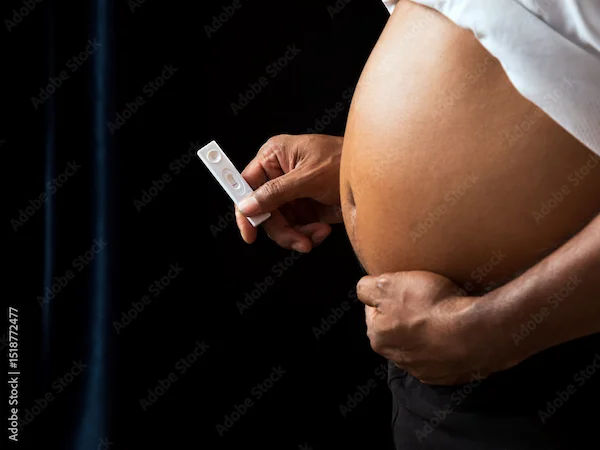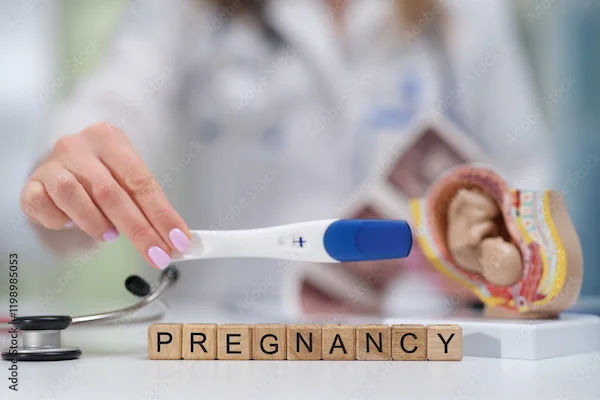Breast Leakage in Pregnancy: Causes, What to Expect, and How to Manage It
Experience breast leakage during pregnancy? Learn about the common causes, what to expect, and how to manage this normal physiological change. Find tips for comfort and protection.

Written by Dr Shreya Sarkar
Last updated on 3rd Jul, 2025
Pregnancy is a time of profound transformation. As your body nurtures new life, it undergoes numerous changes to prepare for the arrival of your baby. One of the less-discussed, yet quite common, changes is breast leakage. Though it can be unexpected and sometimes bothersome, breast leakage is a normal part of pregnancy for many women. In this comprehensive guide, we’ll explore the causes, timing, and management of breast leakage during pregnancy, providing you with everything you need to know to feel prepared and reassured.
What is Breast Leakage in Pregnancy?
Breast leakage refers to the release of fluids from the breasts that can occur at some point during pregnancy. This fluid is often an early sign that your body is preparing for breastfeeding. The liquid that leaks from the breasts during pregnancy is most commonly colostrum, a thick, yellowish fluid that serves as the first milk your body will produce after birth.
Colostrum is rich in essential nutrients, antibodies, and proteins that your baby will need in the early stages of life. While it can sometimes leak out spontaneously, it is important to note that the presence of breast leakage is usually a normal part of the pregnancy process.
Why Does Breast Leakage Occur During Pregnancy?
Breast leakage during pregnancy is a common and natural phenomenon primarily driven by hormonal changes. Let's delve into the details:
Hormonal Changes
Estrogen: Estrogen levels increase significantly during pregnancy. This hormone is responsible for the growth and development of the milk ducts in your breasts, making them ready for brestfeeding.
Progesterone: Progesterone works alongside estrogen to mature the milk-producing glands (lobules) in your breasts. This hormone helps create the proper environment for milk production.
Prolactin: Often referred to as the primary hormone for milk production, prolactin levels rise during pregnancy. Prolactin stimulates the mammary glands to produce milk, even before your baby is born.
Oxytocin: Known as the "love hormone," oxytocin plays a vital role in milk ejection (release of milk from the breast) after birth. Small amounts of oxytocin may be released during pregnancy, contributing to colostrum leakage.
Physical Changes
Development of Mammary Glands: Prolactin stimulates the development and maturation of mammary glands, essential for milk production. This process can cause increased pressure within the breasts, leading to colostrum leakage.
Increased Blood Flow: During pregnancy, blood flow to the breasts increases significantly to support the growth and development of the mammary glands. This enhanced circulation can also contribute to leakage.
External Triggers
Nipple Stimulation: Activities like warm showers, sexual arousal, or even gentle touching can stimulate the release of oxytocin, causing colostrum to leak from the nipples.
When Does Breast Leakage Start During Pregnancy?
Breast leakage during pregnancy can start at different times for different women, but it's most commonly observed in the later stages. Here's a more detailed look at when you might experience it:
Second Trimester (Around 26-30 Weeks)
Some women might start noticing breast leakage as early as the second trimester. This is when your body begins producing colostrum, the nutrient-rich first milk.
Third Trimester
Breast leakage is more commonly noticed in the third trimester as the body continues to prepare for breastfeeding. The hormonal changes, particularly the increase in prolactin, play a significant role in stimulating colostrum production, which may result in leakage.
Individual Variability
It's important to note that breast leakage can vary from woman to woman. Some women might experience it earlier, while others might not notice any leakage until after their baby is born. The absence or presence of breast leakage is not necessarily an indicator of your body's ability to produce milk for your baby.
For first-time mothers, breast leakage may occur later, while women who have previously breastfed may notice leakage earlier or more frequently. This is because the body is already familiar with the milk production process.
How to Manage Breast Leakage During Pregnancy
Managing breast leakage during pregnancy is typically straightforward. While it’s generally harmless, it can be inconvenient or uncomfortable. Here are some tips on how to deal with breast leakage during pregnancy:
Wear Breast Pads: Disposable/washable breast pads can absorb the leaked fluid and prevent any embarrassment or discomfort. These pads can be worn inside your bra to keep your clothes dry and prevent stains. Most women find them helpful, especially if they experience frequent leakage.
Choose the Right Bra: A well-fitting, supportive bra can help minimise discomfort and prevent leakage from soaking through your clothing. Some women prefer to wear a bra with a protective liner or breast pads.
Wear Loose, Comfortable Clothing: Tight clothing can irritate the nipples and breasts, possibly exacerbating leakage. Opt for loose, comfortable tops to help your breasts breathe.
Consult Your Healthcare Provider: If you’re concerned about the amount of leakage, if it’s causing you distress, or if you notice unusual symptoms (such as bloody discharge, pain, or redness), it’s always a good idea to reach out to your doctor or midwife. They can reassure you that what you’re experiencing is normal or investigate if there’s a potential concern.
When to Seek Medical Advice
While breast leakage in pregnancy is often entirely normal, there are a few scenarios where it’s a good idea to speak with a healthcare provider:
Leakage Before 16 Weeks: If you experience breast leakage early in pregnancy (before the 16-week mark), it’s worth discussing with your doctor. It can be due to any underlying issues that needs to rule out at priority.
Pain or Swelling: If the leakage is accompanied by pain, swelling, or warmth, it could be a sign of an infection, such as mastitis. It’s important to address this with a healthcare provider.
Changes in Fluid Appearance: If the fluid that leaks is bloody or has an unusual color, it could be a sign of a more serious condition, such as a breast infection or other medical concern.
Persistent Leakage: If the leakage is very heavy or continuous, it’s a good idea to check in with your healthcare provider.
Conclusion
Breast leakage during pregnancy is a natural and common part of the body’s preparation for breastfeeding. Hormonal changes stimulate the production of colostrum, a nutrient-rich first milk, which can lead to leakage. This typically starts as early as the second trimester but is most common in the third trimester. The amount and timing of leakage can vary significantly among women. For most, it’s a normal occurrence that doesn’t require medical intervention, and it can be managed comfortably with the right clothing, breast pads, and good hygiene.
Understanding these changes can help you feel more confident and prepared for the journey of motherhood. While breast leakage is generally harmless, it's always a good idea to consult your healthcare provider if you notice any unusual symptoms or have concerns about your breast health. Embracing these natural changes as part of your body’s way of nurturing your baby can provide reassurance and peace of mind during this special time.
Consult Top Gynecologist
Consult Top Gynecologist

Dr. Rani Bhat
Gynaecological Oncologist
20 Years • MBBS, MS (Obs & Gyn), MRCOG (UK), Fellowship in Gynae-Oncology (Singapore) Fellowship in Gynae-Oncology & Robotic Surgery (Hong Kong) Diploma in Gynaecological Operative Endoscopy (France)
Bengaluru
Apollo Hospitals Bannerghatta Road, Bengaluru
(25+ Patients)

Dr Rani Bhat
Gynaecological Oncologist
20 Years • MBBS, MS (Obs & Gyn), MRCOG (UK), Fellowship in Gynae-Oncology (Singapore) Fellowship in Gynae-Oncology & Robotic Surgery (Hong Kong) Diploma in Gynaecological Operative Endoscopy (France)
Banglore
Apollo Cancer Centres HSR Layout, Banglore

Dr. Rupashree Dasgupta. Gynaecological Oncology
Gynaecological Oncology & Robotic Surgery
26 Years • MD(Gold Medalist, CMC Vellore), DGO(Gold Medalist, CMC Vellore),DNB, MRCOG(London), MBBS(FOGSI Gold Medalist in Gynaecology).Specialist in Advanced Laparoscopic & Robotic Surgery, UICC Fellowship in Gynae Oncosurgery(BARTS Cancer Institute, LONDON), da Vinci certified training as ROBOTIC CONSOLE Surgeon(USA), Fellowship Gynae Oncosurgery(TMC, Kolkata)
Kolkata
Apollo Multispeciality Hospitals , Kolkata, Kolkata
(350+ Patients)

Dr. Swati Shah
Surgical Oncologist
15 Years • DNB Surgical Oncology, certified Robotic Cancer Surgeon
Ahmedabad
Apollo Hospitals Gandhinagar, Ahmedabad
(25+ Patients)

Dr. Priyanka Srivastava
Medical Oncologist
15 Years • MBBS, MD, DrNB Medical Oncology, Fellowship (Medical Oncology) , PMCC, UOT Canada.
Ahmedabad
Apollo Hospitals Gandhinagar, Ahmedabad




